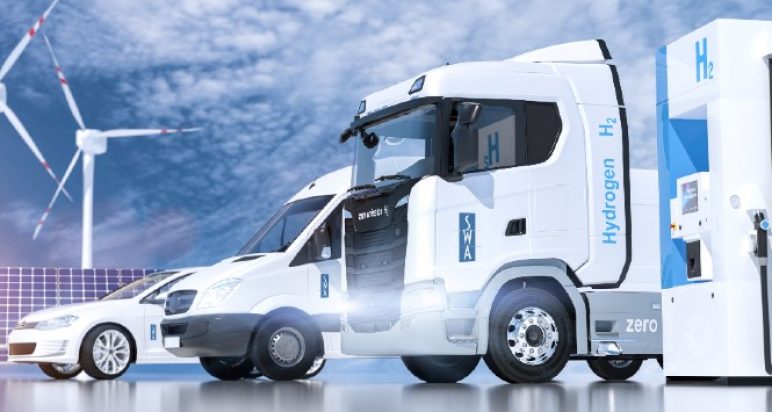Scottish food and drink wholesalers want to reduce their carbon footprint but need more support from the Scottish Government to get there, a new report concludes.
The report – the Scottish Wholesale Association’s (SWA) findings from the first phase of its ‘Decarbonisation of the Wholesale Industry’ project – asks for wider financial support from government to set up a wholesale fleet audit service, enable the transition to green fleets, and for research that will help identify further routes to efficiencies within the wholesale sector.
Colin Smith, SWA Chief Executive, said: “We need the Scottish Government to provide financial support for wholesalers to implement a wholesale industry-wide driver efficiency training programme to reduce emissions.
“Some of our members are already using tools to help reduce emissions through driver efficiencies but we need more financial support to enable more wholesalers, particularly smaller ones who have suffered so much over the past 18 months, to join us on this important journey.”
The report’s other key findings include:
- The Scottish wholesale industry fleet operates a total of 2,198 vehicles.
- Its baseline vehicle carbon emissions equate to 111,000 tonnes of CO2 per annum.
- 75% of the sector’s total fleet emissions are from HGVs.
- HGVs account for 48% of the total fleet and represent more than 3% of all the HGVs registered in Scotland.
- There are currently no commercially viable zero-emission HGVs available in the UK.
- Hydrogen-powered vehicles would appear to be the only commercially viable option for HGVs but adoption is many years away.
- The prohibitive cost of vehicles/adaptation, and lack of fuelling infrastructure, is preventing wholesalers transitioning to hydrogen.
- Vans account for 16% of the total fleet and contribute to 17% of total fleet emissions.
- 46% of vans are refrigerated but there are currently no commercially viable electrically refrigerated vans available.
The SWA hopes that – by becoming a sector lead and sharing the reports and insight with the wider food and drink industry, Scottish Government, Transport Scotland and Scottish Enterprise – a more collaborative approach can be taken to transitioning to net zero.
Earlier this year, the SWA joined forces with London-based Arcola Energy to identify the business case for fuel cell technology in the UK’s transition to zero-emission road freight. The Scottish Hydrogen Fuel Cell Freight Trial (SHyFT), led by Arcola, has secured funding from the Department of Transport’s Zero Emission Road Freight programme for the design of a trial of hydrogen fuel cell trucks, supported by a green hydrogen refuelling infrastructure in Scotland. SWA members are involved in this trial.
Smith said: “Our work, designed to help SWA members and the wider wholesale sector become greener and more sustainable, will also help other sectors.
“Our plans to decarbonise the wholesale food supply chain and achieve net-zero emissions by 2045, if not before, are ambitious but as we have heard during the COP26 climate change summit in Glasgow – countries, governments and businesses must be bold in their approach.”
He added: “Our research will help wholesalers cut through the vast amount of information that is available to them by homing in on the immediate actions they can take to start their own net-zero journeys.
“It also highlights to the Scottish Government and its agencies the scale of the challenge the food and drink wholesale sector faces in the transition to net zero and, crucially, reiterates our commitment to work in partnership and face the challenges together.”
The second phase of the SWA project will focus on wholesalers’ buildings and cold storage with phase three then concentrating on how people/employees move around to, from and within their jobs.







